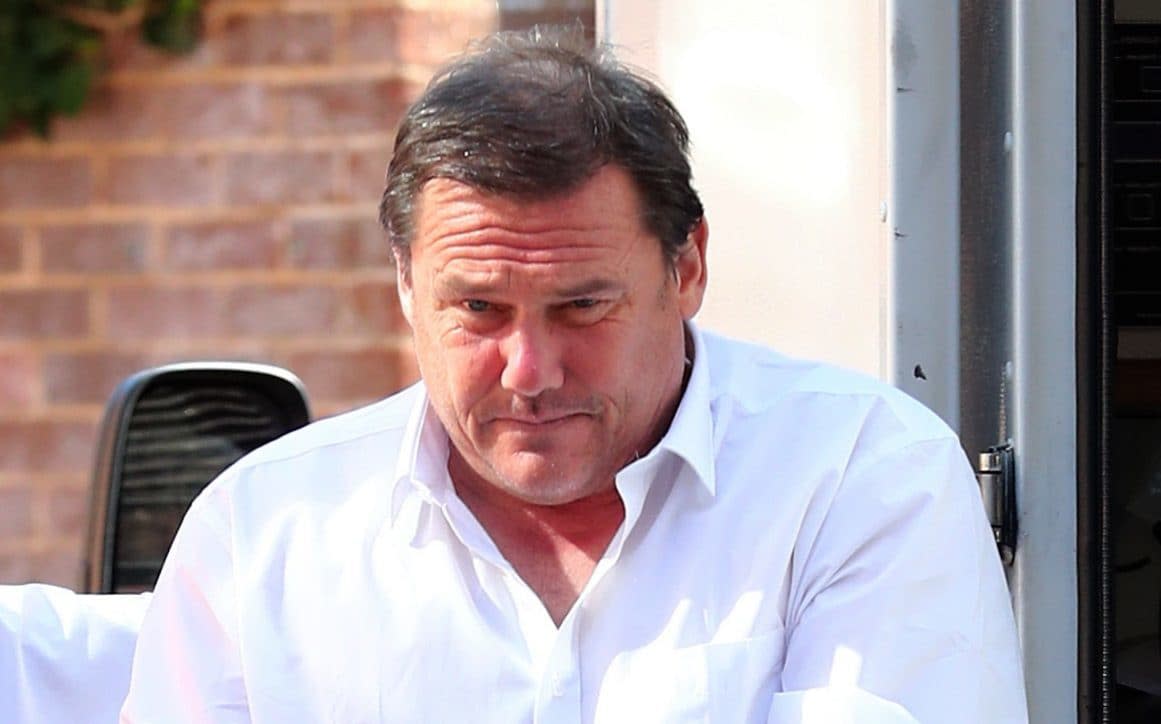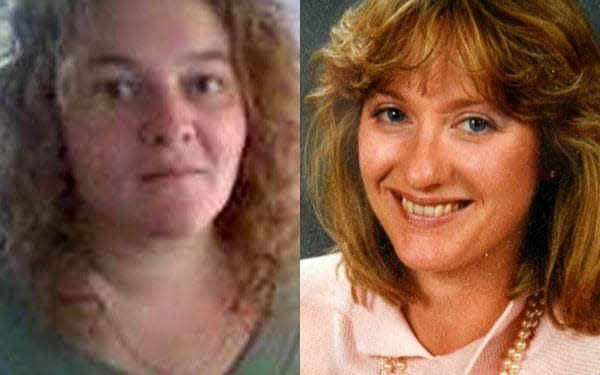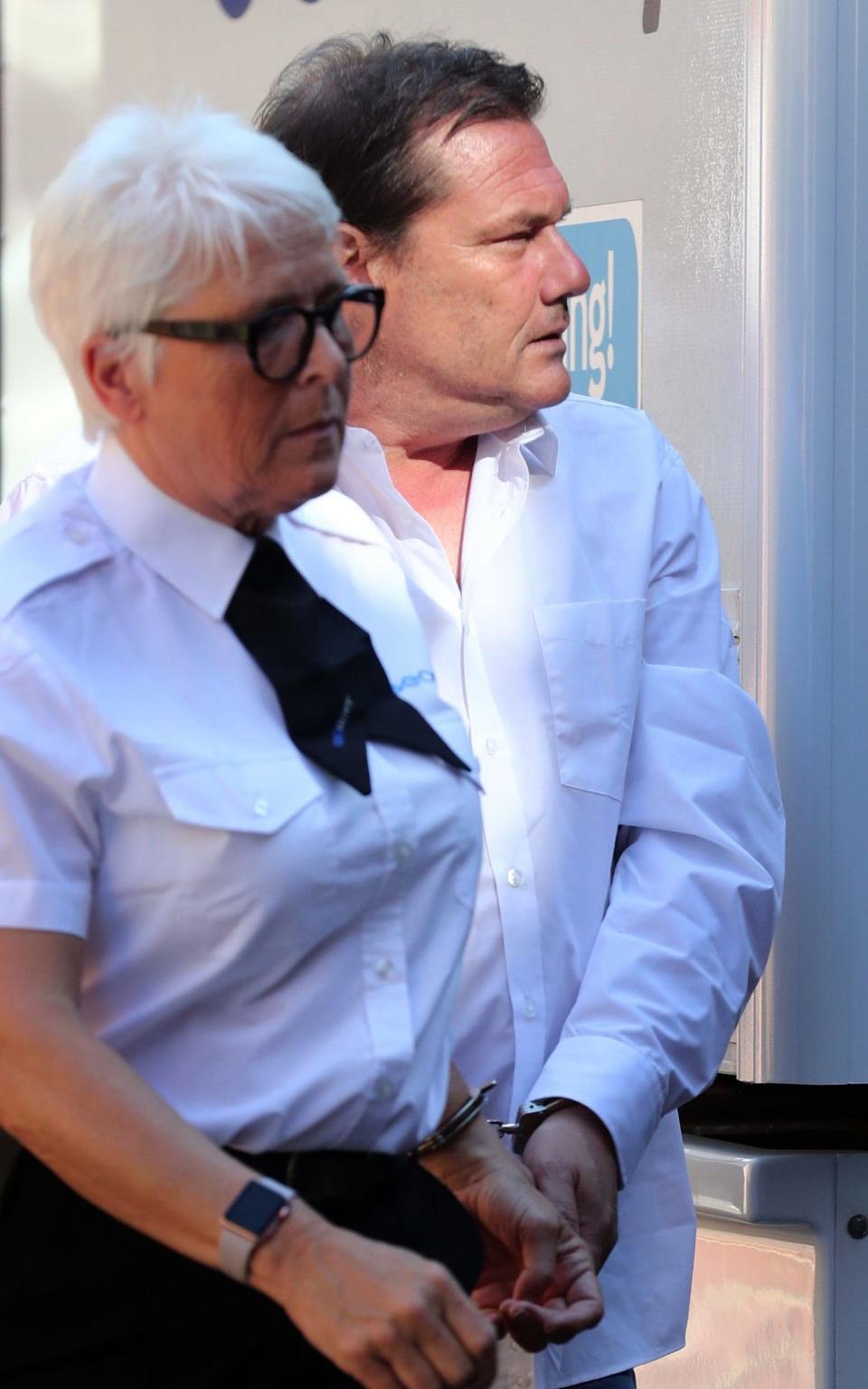Row between police and coroner emerges at trial of chef accused of killing girlfriend

A row between police and the coroner over a £4,000 bill has emerged at the trial of a chef accused of killing his girlfriend.
Police investigating the death of the mother refused to pay for a Home Office pathologist because they only wanted a "routine" examination done, a murder and manslaughter trial heard.
Caroline Devlin was found unresponsive by partner Robert Trigg at her home on March 26, 2006.

Trigg, 52, claims he found Caroline in bed after they had sex and initially thought she was still sleeping until her tried to shake her awake.
Trigg is charged with the manslaughter of 35-year-old Caroline, as well the murder of another girlfriend, 52-year-old Susan Nicholson on April 17, 2011 in Worthing, West Sussex.
Lewes Crown Court heard on Wednesday that Detective Inspector Nigel Brown classified Caroline's death as "non-suspicious but unexplained", which called for a routine post-mortem.
But because whichever body requests a Home Office pathologist has to pay for it, a row broke out between Sussex Police, a Worthing pathologist, and the area's coroner's office as the coroner wanted a more thorough examination done.

As the circumstances around the death were unexplained, the pathologist wanted a Home Office forensic pathologist to carry out the procedure, something with Sussex Police refused to pay for.
An "historic conflict" and "lack of trust" had developed between the counties' pathologist and the police force over previous requests to do with deaths in unexplained circumstances, the court heard.
A written statement by investigating officer DI Nigel Brown was read by Duncan Atkinson QC for the prosecution, which said: "When I classified a death as non-suspicious but unexplained I would sometimes prepare a full briefing document for the coroner's officer along with a sudden death report.
"I would also prepare a briefing for the local pathologist, the purpose was to prepare a report before post-mortem.
"I would do this because I was aware of historic conflict between the local Worthing pathologist post-holder and the police.
"My understanding was if a body was presented to them for post-mortem, as it was here, in circumstances where the body raised questions, particularly where injuries where present without an explanation of how they were accounted for, he sometimes declined to carry out the post-mortem.
"He sometimes took the view a Home Office appointed forensic pathologist should be called.
"I understand there was conflict between him and the police and a lack of trust had developed on his part and his concern was police would attempt to get him to continue with a local post-mortem when a Home Office post-mortem was appropriate.
"I have never had direct experience of this and this view is solely based on hearsay and supposition on my part.
"However because I was aware of this I always took care to prepare such reports for post-mortem in circumstances where police may have concerns and up until that point no problems had arisen between us."
Jurors were told the reason for this dispute was down to money, as neither Sussex Police nor the coroner's office wanted to foot the bill of up to £4,000 for a more thorough pathologist.
DI Brown added: "In this case the local pathologist and coroner took view that police should be requesting a Home Office pathologist from outside, and importantly therefore pay for it.
"The heart of this dispute was budgetary issues, in that the cost to call a Home Office pathologist to carry out a post-mortem was, as I understand, in the region of £2,000 to £4,000.
"This would always come out of the budget of the agency that requested the pathologist.
"If the coroner request a Home Office appointed pathologist, something I never encountered, then the cost would come from the coroner's budget and not from the Sussex Police Major Crime Bureau (MCB) budget."
Caroline Devlin's post-mortem was not conducted for four days after her death due to this dispute over the pathologist, whereas Susan Nicholson's was two days after her death.
DI Brown said in his written statement: "There then commenced communication back and fourth between the parties from the MCB, the coroner's officer and myself.
"There were a number of days of discussions as the entrenched positions developed.
"My understanding was the local pathologist was refusing to carry out the post-mortem and the coroner was saying there's no alternative.
"The coroner wanted Sussex Police to fund a Home Office forensic pathologist to carry out the post-mortem and this was refused by the MCB.
"Eventually the coroner took the decision to obtain a local pathologist from outside the Worthing area to do the post-mortem."
The court was told earlier in the trial that Dr Barbara Borek, who is a forensic pathologist but not a Home Office appointed one, was drafted in to conduct the "routine" post-mortem.
It was claimed by the prosecution she did not look for evidence of injuries from a blow in Caroline's neck, which Dr Nathanial Cary said could have lead to bleeding in her brain.
Giving evidence Dr Borek said although she did not remember doing it, she would have carried out a "Y" incision through Caroline's body, which would have revealed any such bruising.
Her original cause of death was a haemorrhage, probably cause by an aneurysm, although not rupture was found.
Trigg denies one count of murder and one count of manslaughter.
The trial continues.

 Yahoo News
Yahoo News 
